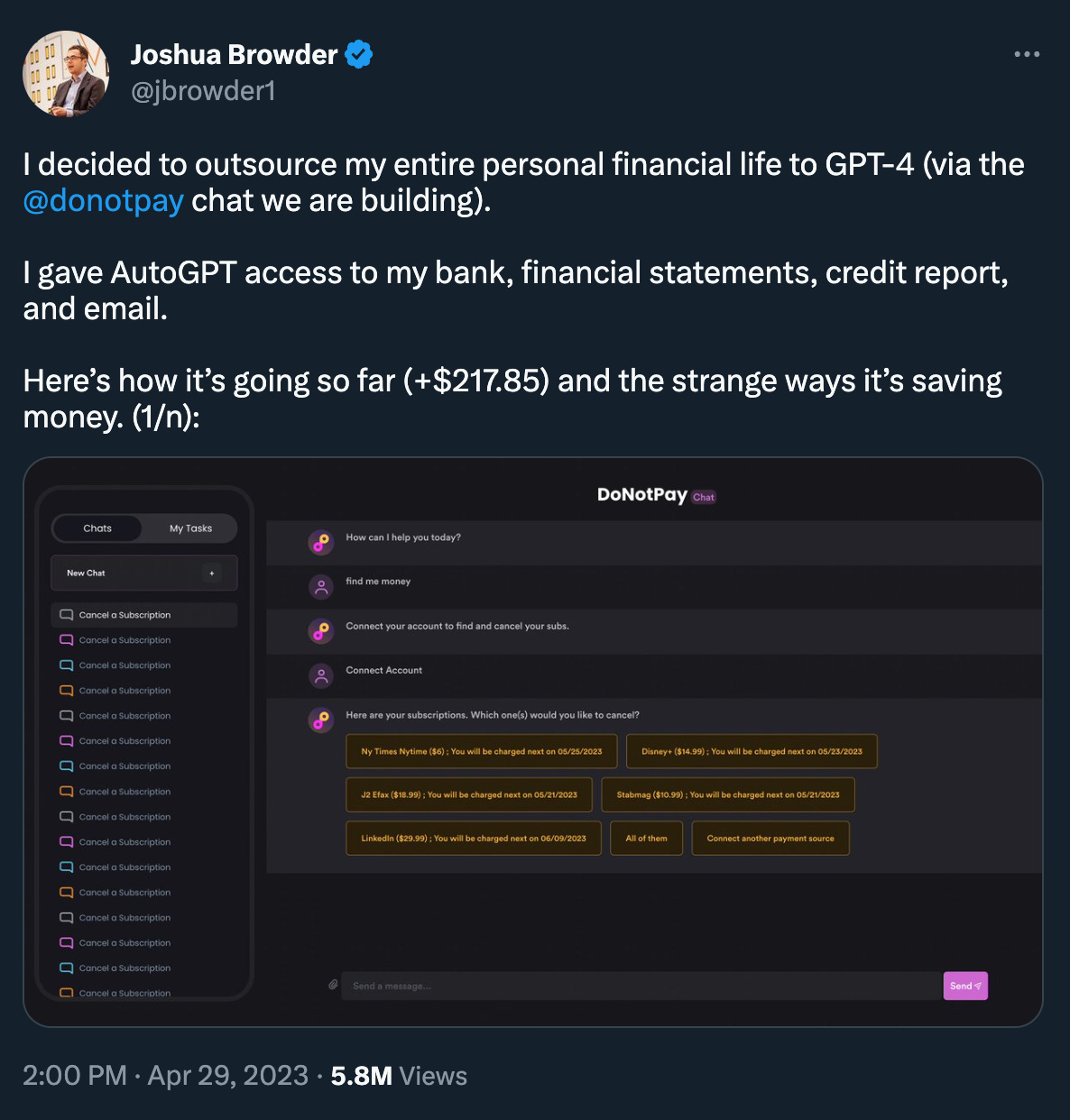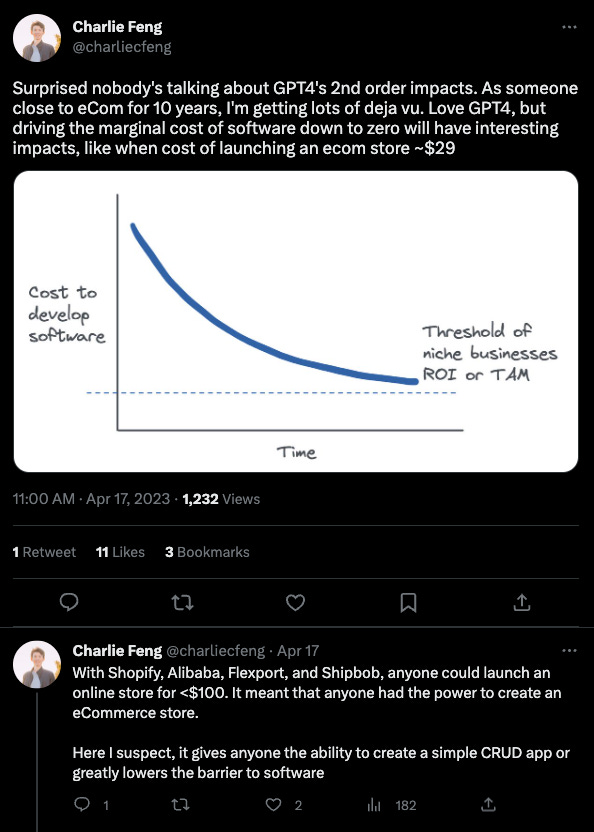This is a post pondering the second-order effects of matured autonomous agents.
Autonomous Agents = AIs that can take a variety of actions on our behalf.
Here is an example of one built by Joshua Browder that logged into all his bank accounts, identified subscription fees, then mailed letters to the ones Joshua wanted to cancel. Pretty cool, and this is just the beginning.
While having coffee with a friend discussing changes in the workplace that more advanced agents like these will cause, he asked a good question:
What fundemental rules will change as a result of matured AIs that can accomplish a wide range of tasks on our behlaf?
One “rule” that I believe will change has to do with the forms of leverage outlined by Naval in his timeless thread titled “How to get rich without getting lucky.”
He outlines 4 types of leverage and categorizes them into “Permission-ed” and “Permission-less”
Capital
Labor
Media
Code
Capital and Labor are in the permission-ed category, meaning they are more difficult to access; you need to convince people to give you money and convince people to work for you. You CAN’T get this leverage without permission.
Media and code are permission-less categories, meaning they are easier to access, anyone can start a newsletter and build up an audience sharing their thoughts, and anyone with the knowledge can build useful software. You CAN get this leverage without permission.
But now we are seeing this shift.
Labor, with the adoption of autonomous agents, is becoming Permission-less.
Permission-ed
Capital
Permission-less
Labor
Media
Code
I think this shift will effectively allow us all to…
Work like “Warren Buffet”
Warren Buffet spends most of his days reading and consuming knowledge in order to make a few very big decisions per year.
These decisions drive all the operations for Berkshire Hathaway.
Warren and Charlie (his partner), make a few decisions every year, and that determines what everyone in their company will be doing day to day for the next year or so.
They make decisions with the judgment they built up from all the reading and critical thinking they do, and a group of agents acts out their desires.
It’s hard for the rest of this to work this way because we don’t have the labor (agents) to carry out our desires.
BUT
If all the hype is real, this will change VERY fast, and most of us can carry out our business as Warren Buffet does.
But instead of a large team of human labor that is very expensive, we will accomplish this with a team of autonomous agents acting on our behalf for a tiny fraction of the cost.
CAVEAT: Buffet built up his judgment over many decades. These autonomous agents will give many the power of an army of workers BUT it won’t give everyone the Buffet judgment. In other words, we will likely see many autonomous agents executing useless plans.
This was discussed in a recent All In Podcast episode, you can listen to the clip below, it’s roughly 18:00 - 21:30.
"One of the biggest mistakes smart engineers make is optimizing a thing that should not exist." - Elon Musk
What next?
It’s hard to anticipate what this will do to the way we work and different industries, but here are a few things that may change:
It becomes even cheaper to start a company and build software (this already happened before with the advent of cloud services and SaaS tools)
Ex) Shopify made it way cheaper and easier to start an e-commerce business
This change will make it way cheaper and easier to make Shopify itself
10x the think-boi’s
When auto-agents do manual labor (pointing and clicking), the role of humans becomes deciding what to do and why to do it.
So, in theory, more of the workforce will be spending less time on screens and more time mapping the path forward.
The workers who spend most of their time in front of a computer become the new “blue-collar”
Operating a computer is looked at as manual labor. The upper and upper middle class spend less and less time on screens, and screen time becomes looked at as a sign of poverty. (This insight came from speaking with Jack Butcher)
Lots of “human” user interfaces die
With agents handling the pointing and clicking, user interfaces begin to cater more to the machine than the human.
Perhaps humans will only interface with a single chat window.
Leaving you with this. We are in 2025, and every human has an army of AI agents executing tasks on their behalf. 90% of what was once done on a computer by humans can now be accomplished with AI agents in a tiny fraction of the time and expense.
What will you be doing?
-Tyler Donahue








First off, a hello from a fellow WOP-an Tyler. I remember when I first used a primitive AI to sort my emails, thinking it was magic! The real kicker will be when these agents learn judgment, not just efficiency—'cause right now, they're like super-fast toddlers with keyboards.. Btw I love what I'm reading. I'm excited to read more of your work!